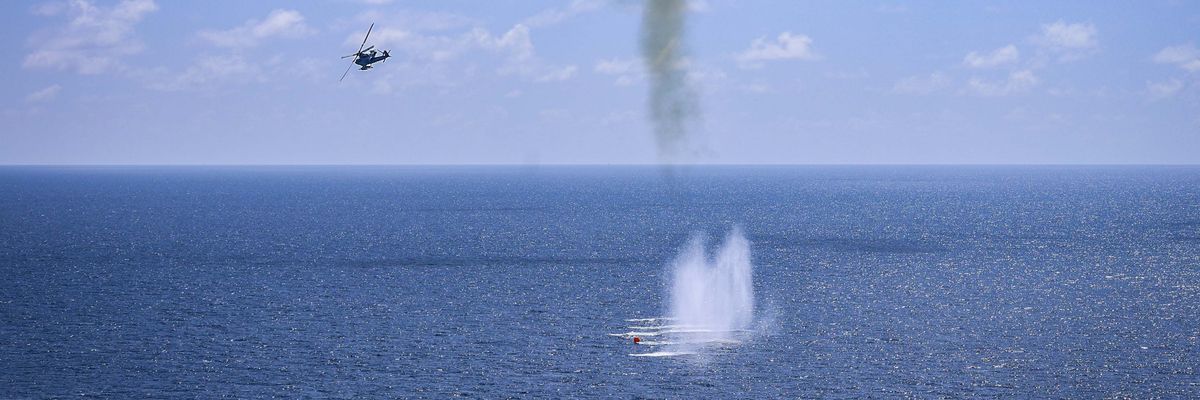
The Trump administration reportedly told members of Congress that the president’s deadly, unauthorized airstrikes on vessels in international waters can continue indefinitely, deploying a rationale that the Obama administration applied to its 2011 bombing of Libya.
The Washington Post reported Saturday that “T. Elliot Gaiser, head of the Trump administration’s Office of Legal Counsel, made his remarks to a small group of lawmakers this week amid signs that the president may be planning to escalate the military campaign in the region, including potentially hitting targets within Venezuela.”
Under the 1973 War Powers Resolution, the president has 60 days to terminate military operations not approved by Congress. The 60-day clock starts when the president notifies Congress of military action.
Monday marks the 60th day since Trump informed Congress of his first strike on a boat in the Caribbean in early September. The strike killed 11 people whom the administration accused without evidence of trying to smuggle drugs from Venezuela to the United States.
Trump has since authorized more than a dozen other strikes on boats in international waters, killing more than 60 people in what human rights organizations and United Nations experts have described as blatant violations of US and international law.
The Trump administration has told lawmakers that the US is engaged in “armed conflict” against drug cartels that the president has designated as “terrorist organizations.”
But the White House is insisting that Trump’s military actions in international waters are not constrained by the War Powers Resolution, claiming the operations “do not rise to the level of ‘hostilities’” because the administration says American troops are not likely to be put in danger.
Brian Finucane, a former legal adviser at the State Department who now works at the International Crisis Group, observed Monday that the Trump administration’s narrow definition of hostilities echoes “arguments made by the Obama administration in 2011 with respect to the military intervention in Libya.”
“The Obama administration’s interpretation of ‘hostilities’ was not well received, including by the US Congress,” Finucane wrote, pointing to a May 18, 2011 letter that Republican senators sent to Obama accusing him of flouting the War Powers Resolution.
One of those GOP senators—Rand Paul of Kentucky—is backing a bipartisan war powers effort to prevent Trump from unilaterally and unlawfully attacking Venezuela.
Finucane stressed that the implications of the Trump administration’s decision to interpret hostilities narrowly “are significant,” noting that it paves the way for the US government to “continue its killing spree at sea, notwithstanding the time limits imposed by the War Powers Resolution.”
“Second, the executive is arrogating to itself greater power over the use of force that constitutionally is the prerogative of Congress,” Finucane added. “It is a power grab in the service of killing people outside the law based solely on the president’s own say so.”
On Saturday, Drop Site reported that the Trump administration has expanded its “drug cartel target list” to include sites inside Colombia and Mexico amid concerns that the president could soon attack Venezuela and launch an effort to overthrow the nation’s president, Nicolás Maduro.
“At an Oval Office meeting in early October, Trump administration officials and top generals discussed escalating the pressure on Venezuela to go beyond the semi-regular attacks on boats in the Caribbean,” the outlet reported. “The discussed plans include striking on land inside Venezuela… The same October 2 meeting included a previously reported directive from President Trump, who dialed his special envoy Richard Grenell into the call, telling him to cut off diplomatic communications with Maduro.”
Asked during a newly aired “60 Minutes” interview if he believes Maduro’s days as Venezuela’s president are “numbered,” Trump responded, “I would say yeah.”
From Common Dreams via This RSS Feed.

